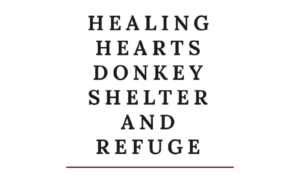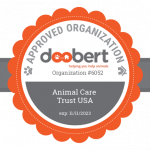 This week, on All My Children Wear Fur Coats, Paulette Quiroga-Jacklin shared valuable insights on the essential care requirements for donkeys and debunked common misconceptions about their diet, behavior, and handling.
This week, on All My Children Wear Fur Coats, Paulette Quiroga-Jacklin shared valuable insights on the essential care requirements for donkeys and debunked common misconceptions about their diet, behavior, and handling.
Paulette Quigora-Jacklin is the founder of Healing Hearts Donkey Shelter and Refuge, a haven for abandoned, abused, neglected and unwanted donkeys. With years of experience in donkey care, including rehoming over 200 donkeys as a satellite adoption center for Peaceful Valley Donkey Rescue, Paulette made the decision to open her own shelter in 2019. Healing Hearts is committed to rehabilitating, training, and rehoming donkeys, while also educating the public on responsible donkey ownership.
Paulette highlighted the unique dietary needs of donkeys. She explained that while horses evolved to survive in lush grasslands, donkeys evolved to survive in the barren desert. Donkeys have an evolutionary tendency to continuously search for food, and when placed in a pasture with abundant grazing, this instinctive behavior can lead to overeating and, consequently, weight gain. Paulette suggested offering donkeys a high-fiber diet, ideally consisting of barley straw, which closely resembles the desert shrubs they would naturally consume. Recognizing that barley straw may be hard to find, she listed wheat straw as a suitable alternative.
Paulette illuminated several common mistakes in donkey care that she has observed. She stressed the importance of enrichment for donkeys and encouraged owners to halter their donkeys, take them on walks, and set up obstacle courses. Providing donkeys with activities to prevent boredom is essential for their overall wellbeing. Paulette also highlighted the need for frequent hoof care so handling their feet is an important enrichment too.
To ensure that the animals are placed with compatible and responsible owners, Paulette requires potential adopters to meet specific criteria. To begin with, Paulette observes the potential adopter to assess whether they are establishing a connection with the donkey. The adopter must also demonstrate the ability to handle the donkey confidently, showing comfort with haltering and picking up its feet. When asked about the growing popularity of donkeys as livestock guardian animals, Paulette advised against the practice, reiterating the health risks associated with donkeys living on pasture. According to Paulette, donkeys thrive when they have the companionship of both humans and other donkeys—something they often lack when serving solely as farm helpers.
If you would like to learn more about Healing Hearts Donkey Shelter and Refuge, or to place a donation, please visit HHDonkey.org. Follow Healing Hearts on social media at Facebook.com/PJ.HHDSAR and Instagram.com/QuirogaJacklin/#.
Ensure your pet’s legacy is protected with a Pet Trust! Visit ACT4Pets.org for more details!


